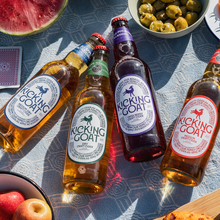How To Take Care of Your Mental Health After a Traumatic Event
- Hinton Magazine

- Nov 19, 2025
- 3 min read
Experiencing a traumatic event can leave lasting emotional, psychological and physical effects. Shock, anxiety, sadness and confusion are common responses, and these feelings can surface long after the incident itself. Healing doesn’t happen overnight, but there are practical steps that can help you regain stability, confidence and a sense of control.
Below are some supportive, actionable strategies to help improve your mental wellbeing after a traumatic experience.

1. Talk to Someone You Trust
Opening up to a friend or family member can ease the emotional weight you’re carrying. You don’t need to share everything in one go. Even small conversations can help you reconnect with a sense of normality and remind you that support is available.
If talking to people close to you feels difficult, consider speaking with a professional who understands trauma and recovery.
2. Seek Professional Support Early
Many people benefit from speaking with a therapist, counsellor or mental health specialist who works with trauma. Professional help gives you space to process your emotions, understand your reactions, and learn coping strategies that fit your situation.
Timely support can also reduce the risk of long-term difficulties linked to trauma.
3. Re-Establish Routine
Trauma can disrupt daily life. Creating or returning to structure can help you feel more grounded.
Set small, manageable tasks for each day
Keep consistent sleep and wake times
Eat regularly
Introduce gentle physical activity
A simple routine helps your mind recognise safety and stability.
4. Focus on Your Physical Health
Your physical and mental health are closely connected. Even light exercise such as walking can help reduce stress and improve sleep. Staying hydrated, eating balanced meals, and limiting caffeine or alcohol can also support your mood during recovery.
5. Use Mindfulness and Relaxation Techniques
Mindfulness, breathing exercises and grounding techniques can help you manage overwhelming thoughts or anxiety. These tools retrain your body’s stress response, making it easier to recognise when you are safe and calm.
Simple practices like slow breathing, progressive muscle relaxation or guided meditation can make a noticeable difference.
6. Avoid Isolation
Trauma can make you want to withdraw from others, yet isolation often makes distress feel more intense. You don’t need to meet large groups or be highly social; gentle connection, such as meeting a friend for coffee or joining a supportive online community, can help you feel less alone.
7. Give Yourself Time and Compassion
Healing after a traumatic event is personal. There is no fixed timeline. Try to be patient with yourself as you recover.
Accept difficult days without judgement
Celebrate small steps forward
Remind yourself that recovery is possible
Being kind to yourself is an important part of rebuilding confidence and resilience.
8. Get Practical Support if Your Trauma Involved an Accident
If your trauma resulted from an accident, getting practical support can also help relieve stress. Many people feel overwhelmed by medical costs, insurance pressures, or uncertainty about their rights after an incident.
If you require legal help, don’t hesitate to reach out to an accident solicitor to understand your legal options and support you through the claims process. Taking action can help you feel more empowered and may reduce some of the financial and practical strain that often adds to emotional distress. There are numerous organisations out there who can offer expert advice, such as ASD Accident Solicitors who specialise in exactly these sorts of claims.
Trauma affects everyone differently, and healing takes time. By seeking support, building healthier routines and giving yourself space to heal, you can gradually regain a sense of balance and wellbeing. You don’t need to go through this alone — support systems, professionals and trusted organisations are there to help you move forward with strength and confidence.
.png)
_edited.jpg)












Comments